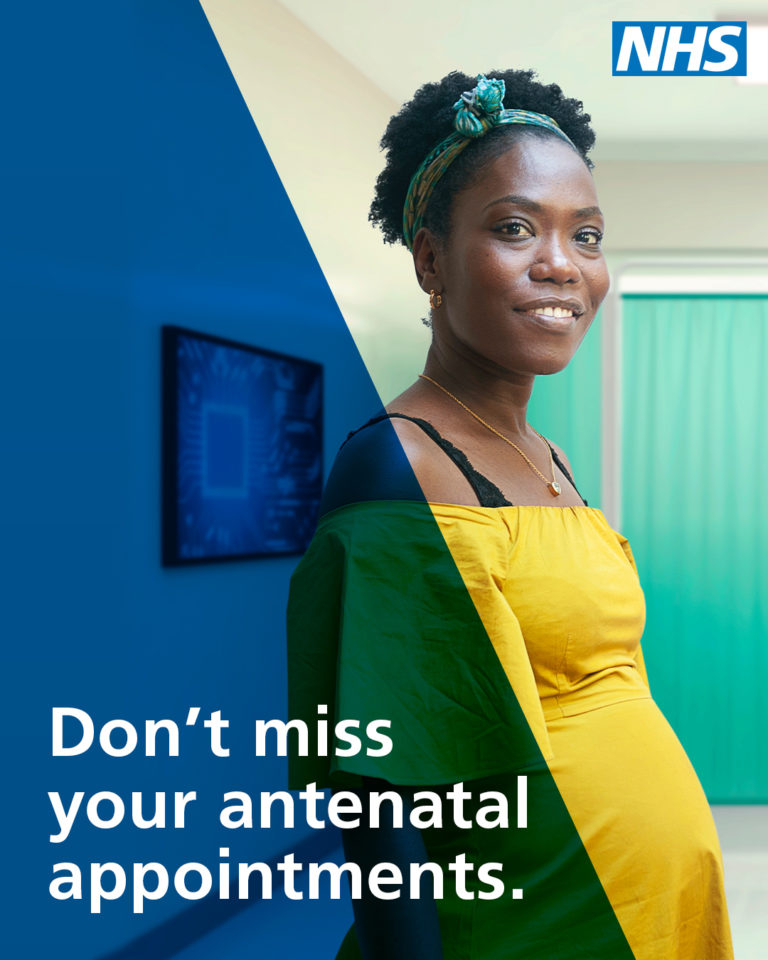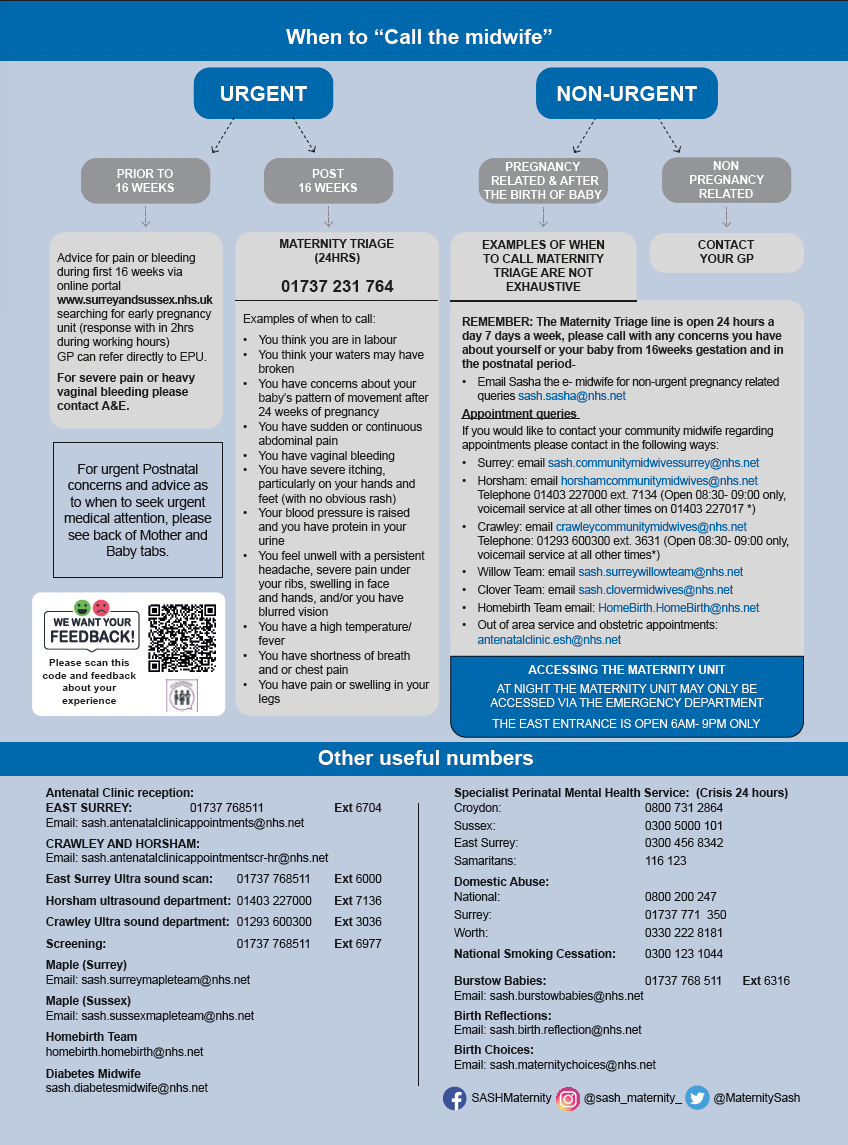Your antenatal care appointments
In this section you can find the routine schedule of antenatal appointments you can expect to have during your pregnancy. This can also be found in your handheld maternity notes so you can keep track of your care.
Your antenatal appointments with your community midwife are usually at a GP surgery within your local community team.
See below the timeline of routine appointments you can expect during your pregnancy.
7-9+ weeks: Booking appointment with midwife
First antenatal contact, hour long appointment with a full antenatal risk assessment. Discussion of nutrition, diet, smoking, alcohol and lifestyle advice. Screening tests for you and your baby. Choices for birth place to include: Homebirth, Birthing Centre, Delivery Suite or Theatre. Assessment of vulnerability issues to include partners details. Routine booking bloods, body mass index and blood pressure and urinalysis. Invite to parent education and infant feeding classes.
11-14+1 weeks: Early pregnancy scan (nuchal) and combined screening
16-17 weeks: appointment with midwife
Review scan and screening tests to date and document results. If missed combined screening, offer quad set screening between 14-20 weeks. Blood pressure and urinalysis. Information regarding flu and Pertussis vaccinations. GAP-Grow chart generated. Consider referral for extra support services if required. Discussion of baby movements and RCOG guidelines.
19-21 weeks: ultrasound scan (Anomaly scan)
25 weeks: appointment with midwife (optional appointment for women who have had more than one child)
Blood pressure and urinalysis. Get your Mat B1 form.
Discussion of baby movements and RCOG guidelines. Information regarding flu and Pertussis vaccinations. Review parent education needs and discuss infant feeding.
28 weeks: appointment with midwife
Full blood count and antibodies, offer Anti D for Rh negative women. Offer OGTT to all women / review OGTT results. Re-offer booking bloods if declined at booking. Measure bump and plot fundal height (cms), Blood pressure and urinalysis. Review parent education needs and discuss infant feeding.
Mat B1 form if not received at 25 week appointment. Discussion of baby movements and RCOG guidelines.
31 weeks: appointment with midwife
Measure and plot SFH (cms), blood pressure and urinalysis
Review, discuss and record 28 week results. Discussion of baby movements and RCOG guidelines.
 34 weeks: appointment with midwife
34 weeks: appointment with midwife
Measure and plot fundal height (cms), blood pressure and urinalysis. Discussion of birth preferences and Vitamin K. Repeat weight (if BMI over 35 at booking). Discussion of baby movements and RCOG guidelines.
36 weeks: appointment with midwife
Measure and plot fundal height (cms), blood pressure and urinalysis. Discussion of baby movements and RCOG guidelines.
Discussion of signs of labour, infant feeding, position of baby (if breech, referral to breech team). Smoking status, measure Carbon monoxide (CO) reading.
38 weeks: appointment with midwife
Measure and plot fundal height (cms), blood pressure and urinalysis. Discussion of baby movements and RCOG guidelines.
Discussion of postnatal self-care including mental health and wellbeing, care of newborn and postnatal support. Discussion of induction of labour for post date using shared decision tool.
40 weeks: appointment with midwife
Measure and plot fundal height (cms), blood pressure and urinalysis. Discussion of baby movements and RCOG guidelines.
Offer membrane sweep. Discussion of induction of labour for post date using shared decision tool.
41 weeks: appointment with midwife
Measure and plot fundal height (cms), blood pressure and urinalysis. Discussion of baby movements and RCOG guidelines.
Offer membrane sweep. Plan for post dates induction of labour and referral to maternity choices team if required.
If you’re pregnant or have given birth in the last 12 months, you are entitled to:
- free NHS dental treatment
- free NHS prescriptions, if you have a valid maternity exemption certificate
A maternity exemption certificate:
- entitles you to free prescriptions
- can be used to prove your entitlement to free NHS dental treatment
To apply, you will need to speak to your midwife, doctor or health visitor as they need to complete the application for you. You can then apply as soon as your health care professional confirms you are pregnant.

